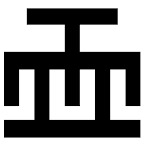,

In mid-2012, we added Yoruba to our list of supported languages.
Yoruba (ede Yorùbá, i.e. 'the Yoruba language') is a language of West Africa. It is the first language of many people in Nigeria, Benin, and Togo. Small communities also speak Yoruba in Brazil. In Cuba it is called Nago.
Writing Conventions of kasahorow Yoruba
kasahorow Yoruba is a modern, simpler spelling system for Yoruba that uses just the standard Yoruba alphabet.
Modern Yoruba can be used to write ede Yoruba and Nago.
Yoruba was an interesting choice because it had a proud community, who were insistent on using tone marks to distinguish between various Yoruba words. But as we mentioned in our spelling note, we think using diacritics to preserve pronunciation slows down the development of a language.
However, kasahorow Yoruba can represent diacritics where it helps to disambiguate a word. The disambiguation happens with the help of a silent 'h' or 'r'.
rorpoh
is the kasahorow Yoruba equivalent of
rọ́pò
i.e.
ọ́ is written in simple characters as ọr
ò is written in simple characters as oh
If you don't already speak Yoruba, we encourage you to find a friend who does and learn their pronunciation. Your friend will be flattered, and learning their accent will bring you and your friend closer together!
nom.1
Most Yoruba nouns belong to this category. For example, iwe.
act.1
Most Yoruba verbs belong to this category. For example, rin.
Improve kasahorow Yoruba
Buy a kasahorow Yoruba product or service if you want us to add other word categories for Yoruba faster. If you want to order in bulk please get in touch with us at help@kasahorow.com.
Application of kasahorow Yoruba
Yoruba word therapy is available on kasahorow.com
Expressing Wonder in Yoruba
These are simple statements with subject (ọmọbinrin yẹn), action (njẹ), and object (ohunjẹ yẹn). For example, "Ọmọbinrin yẹn njẹ ohunjẹ yẹn."
Expressing Curiosity in Yoruba
These are simple questions with subject (ọmọbinrin yẹn), action (njẹ), and object (ohunjẹ yẹn). For example, "Ọmọbinrin yẹn njẹ ohunjẹ yẹn?".
